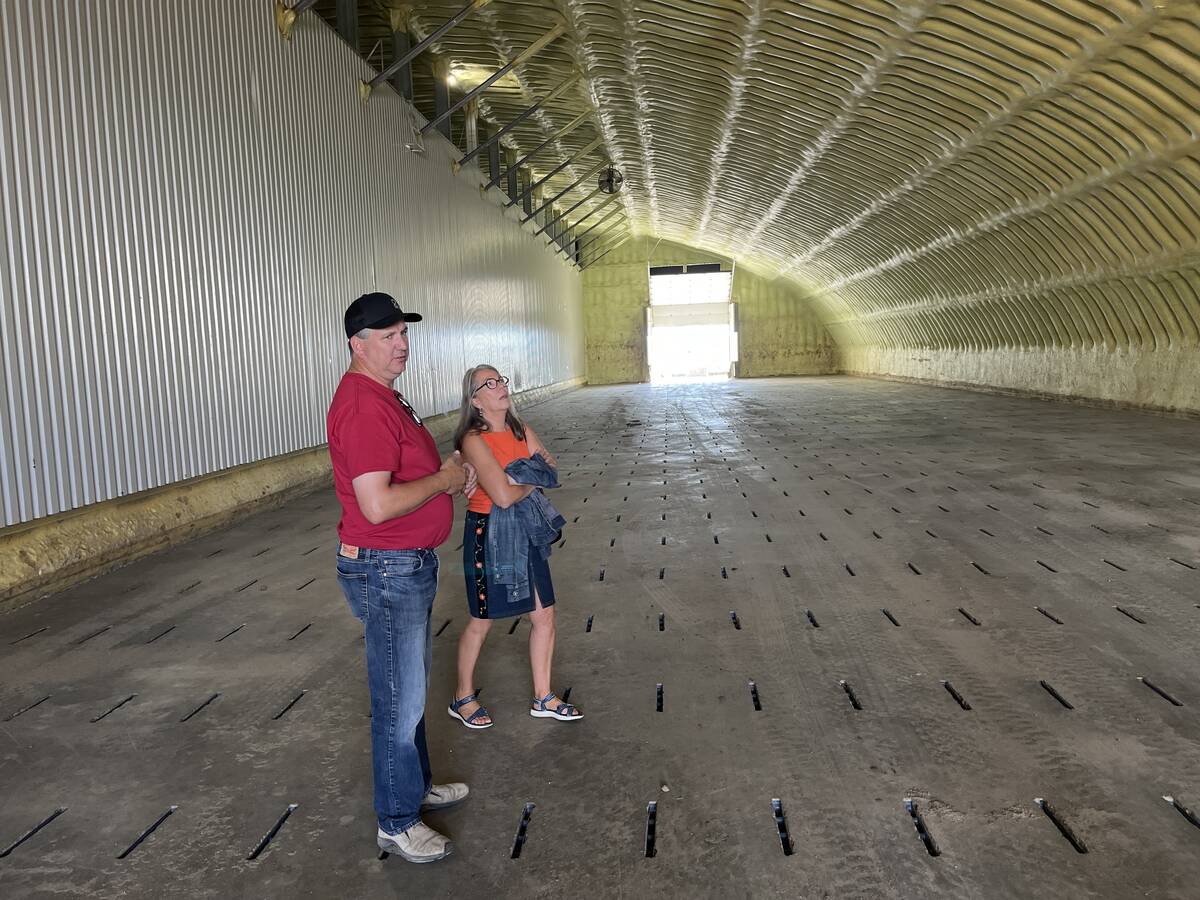WINNIPEG – Manitoba Pool Elevators is gazing south as it enters its 70th year of marketing grain on behalf of Manitoba farmers.
Chief executive officer Greg Arason told delegates meeting here this week that the U.S. market will become more important for the province’s largest grain handler and its farmer owners.
Increasing transportation costs make it more expensive for Manitoba grain to access off-shore exports through the West Coast. Meanwhile, grain produced in the province is in a “natural draw area” for several major U.S. markets which can be reached by truck or rail through Thunder Bay, he said.
Read Also

Potato farm requires year-round management
The most recent Open Farm Day in Alberta showcased agricultural producers across the province educating the general public about the process that is required is to get food to their table.
About 15 percent of the 4.48 million tonnes delivered to MPE last year was moved by truck, to destinations mostly in the U.S. The volume the company exported by truck last year more than doubled.
While the movement last year was unusual because of feed grain demand in the U.S., there appears to be stable markets developing across the border for commodities such as extra-strong spring wheat and high protein spring wheat and durum, said Arason.
“I think these north-south alliances are going to be of increasing importance to Manitoba Pool Elevators.”
Towards that goal, last year the co-operative purchased facilities and assets of Stow Seed Processors, a subsidiary of the U.S. giant, Con-Agra.
Arason said the pool got more than grain handling facilities. It got market access by supplying grain to Con-Agra’s U.S. and Canadian milling interests.
“That opportunity was the significant thing we looked at when we acquired the assets of Stow Seeds Processors,” he said.
However, the purchase combined with other MPE investments in facilities and affiliated companies helped reduce the company’s working capital by 16 percent last year to $24.2 million. Company officials said the reduced working capital is a concern, but there are no plans to seek external financing through a public share offering.
President Charlie Swanson said the co-operative will be monitoring the experience of its sister co-operatives, but “we’re not getting the groundswell from our membership that we should be going public,” he said.
Arason said MPE’s overall earnings were down 31 percent to $9.42 million last year, mainly because it had less grain to move.
“The decline in net earnings can be mainly attributed to a 32 percent decline in grain purchases,” Arason said.
Country elevator earnings were down 22 percent, resulting in a loss of $5.5 million for the division. A late fall, difficult harvest and below average quality reduced purchases of Canadian Wheat Board grains by 1.1 million tonnes.
For the fifth consecutive year, the co-operative’s share of the provincial market slipped one percent. Last year it handled 52 percent of the Manitoba deliveries of the six major grains.
“Higher volumes must be achieved in order to sustain our grain operations in the future,” Arason said.
But he said the agri-sales division boosted sales 21 percent to establish a new sales record of $101.2 million. It posted earnings of $4.6 million, up from $454,713 last year.
The Manitoba Co-operator also reported a $257,092 profit, up 49 percent over last year. The livestock division recorded a loss of $241,014.
















